What does it mean to make a choice?
Decision-making is rarely as simple as right or wrong, black or white, yes or no: it is a murky and complex process filled with human (and nonhuman) will, impulse, and error. This event brings together artists, activists, and scholars from across disciplinary boundaries to explore how choices are made, and why. Join us for three exciting panels that examine the social, philosophical, and creative contours of choice-making.
The event in itself is choice-filled: talks and performances are available to be streamed two weeks before the live discussions, empowering the audience to choose when and in what order they engage with the material. Live, mediated 90-minute discussions, including audience Q+A, will take place online February 19 and 20.
Terra/Forms of Choice
February 19, 2021 (Friday) / 11:00 am—12:30 pm
Drawing on their expertise in ecocriticism, art-making, and activism, this panel considers how different methods and practices can shape, and reshape, choice-making and asks: How do artists, activists, scholars, curators, and communities disseminate information needed to incite large-scale movements and global change?
PRE-RECORDED PRESENTATIONS
Ama Josephine B. Johnstone
Pollination as Praxis: The Queer Temporalities of Intimate Ecologies
Chelsea Mikael Frazier
Theorizing Red and Wounds in Wangechi Mutu’s Eco-Art
Himali Singh Soin
Static Range
Zina Saro-Wiwa
Pineapple Suicide + Parasol
Synchronous discussion and Q&A moderated by Elyan Hill, Andrew W. Mellon Postdoctoral Fellow in the Humanities, Wolf Humanities Center.
Temporalities of Choice
February 19, 2021 (Friday) / 3:15 pm—4:45 pm
Bringing together philosophy, Chinese cultural studies, and critical theory this panel explores how choices morph and change as timeframes expand and contract and asks: how do choices look different in retrospect, and how do we understand cause and effect in such a complex world?
PRE-RECORDED PRESENTATIONS
Carlos Rojas
"Fifty Years Without Change": Reimagining Futurity Through a Focus on the Extended Present
Karen Thornber
Choice and Health - Healing, Well-being, and Literature.
Synchronous discussion and Q&A moderated by Keren He, Andrew W. Mellon Postdoctoral Fellow in the Humanities, Wolf Humanities Center.
Ideologies and Materialities of Choice
February 20, 2021 (Saturday) / 2:00 pm—3:30 pm
Pooling their expertise in history, anthropology, and philosophy, this panel explores the relationship between ideology and material conditions and asks: how does this relationship shape choice-making at both a personal and collective level?
PRE-RECORDED PRESENTATIONS
Jorge L. A. Garcia
Choice, in Social Context and under Philosophical Scrutiny
Nancy H. Kwak
Moving from Housing Choice to Housing Right
Heonik Kwon
Memory of Choices
Synchronous discussion and Q&A moderated by Na Sil Heo, Andrew W. Mellon Postdoctoral Fellow in the Humanities, Wolf Humanities Center.
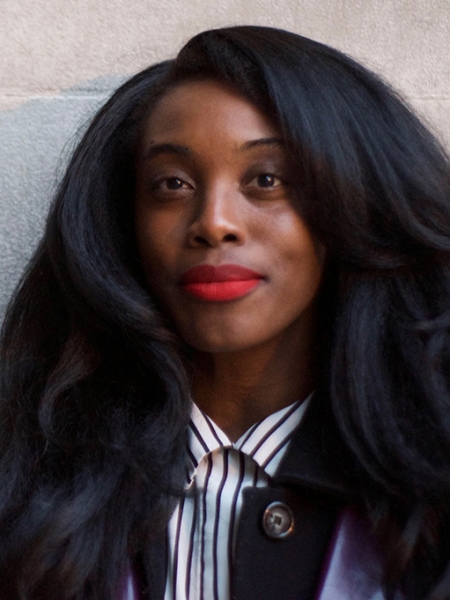 Chelsea Mikael Frazier is a scholar working at the intersection of Black feminist literature and theory and the environmental humanities. Her scholarship, teaching, and public speaking span the fields of Black feminist literature and theory, visual culture, ecocriticism, African art and literature, political theory, science and technology studies, and Afrofuturism.
Chelsea Mikael Frazier is a scholar working at the intersection of Black feminist literature and theory and the environmental humanities. Her scholarship, teaching, and public speaking span the fields of Black feminist literature and theory, visual culture, ecocriticism, African art and literature, political theory, science and technology studies, and Afrofuturism.
She is currently at work on her first book manuscript—an ecocritical study of contemporary Black women artists, writers, and activists. In her analyses, she probes the ways that dominant theoretical and disciplinary frameworks in environmental studies obscure the legibility of what she calls a Black feminist ecoethic as it manifests in Black women’s environmental writing, visual art, and activism across the African diaspora.
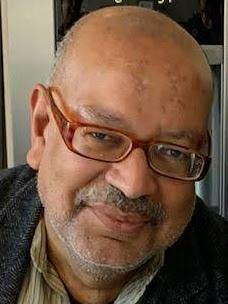 Jorge L. A. Garcia is Professor in Boston College's Philosophy Department and, previously, Associate Professor in the philosophy departments of Notre Dame and Georgetown, Professor in Rutgers’s (New Brunswick), Senior Research Scholar in the Kennedy Institute of Ethics and Visiting Professor in MIT’s Department of Linguistics & Philosophy. His work on ethical theory, social philosophy, and at the intersection of philosophy & race studies has appeared in international periodicals–among the most notable are American Philosophical Quarterly, Philosophical Studies, Philosophy & Phenomenological Research, Erkenntnis, Synthese, Mind (UK), Critica (Mexico), Australasian Journal of Philosophy, Philosophia (Israel), and Philosophical Papers (South Africa)–and his article “Heart of Racism” has been reprinted several times, including in translation. Along with related writings, it has generated numerous published discussions, to several of which Garcia has replied in print. He is currently set to contribute to debate volumes on virtue ethics and social construction.
Jorge L. A. Garcia is Professor in Boston College's Philosophy Department and, previously, Associate Professor in the philosophy departments of Notre Dame and Georgetown, Professor in Rutgers’s (New Brunswick), Senior Research Scholar in the Kennedy Institute of Ethics and Visiting Professor in MIT’s Department of Linguistics & Philosophy. His work on ethical theory, social philosophy, and at the intersection of philosophy & race studies has appeared in international periodicals–among the most notable are American Philosophical Quarterly, Philosophical Studies, Philosophy & Phenomenological Research, Erkenntnis, Synthese, Mind (UK), Critica (Mexico), Australasian Journal of Philosophy, Philosophia (Israel), and Philosophical Papers (South Africa)–and his article “Heart of Racism” has been reprinted several times, including in translation. Along with related writings, it has generated numerous published discussions, to several of which Garcia has replied in print. He is currently set to contribute to debate volumes on virtue ethics and social construction.
Garcia’s work has also earned postdoctoral fellowships from the Ford Foundation, National Endowment for the Humanities, Harvard's professional ethics program (now it's Safra Center for Ethics), and Boston University, and he was Nonresident Fellow in Harvard’s Du Bois Institute for African-American Research. Garcia has lectured at Cambridge, Columbia, Dartmouth, Harvard, Princeton, Yale, and other universities, and consulted for National Institutes of Health, US Dept of Education, Smithsonian Institution, NEH, National Science Foundation, National Research Council, American Council of Learned Societies, and European Research Council. Formerly vice president of the Society for the Study of Africana Philosophy in NYC, he is past member of the Board of the American Philosophical Association’s Eastern Division, served on the APA’s Committee on Hispanics, and chaired its Committee on Philosophy and the Black Experience.
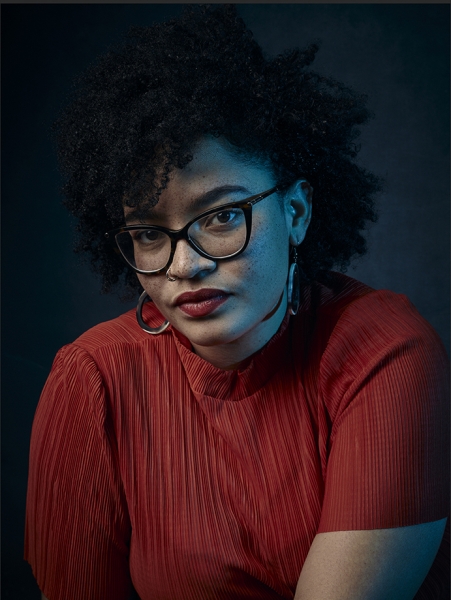 Ama Josephine B. Johnstone is a researcher and pleasure activist whose work navigates intimate explorations of race, art, ecology, and feminism, working to activate movements that catalyze human rights, environmental evolutions, and troublesomely queered identities. Ama is a PhD candidate in Psychosocial Studies with Dr. Gail Lewis at Birkbeck. Her research takes a queer, decolonial approach to challenging climate colonialism, with a particular focus on inherently environmentalist pleasure practices in Ghana and across the Black diaspora. Ama is the 2020-21 Keith Haring Fellow in Art and Activism with BARD College, and will be based in upstate New York from January 2021.
Ama Josephine B. Johnstone is a researcher and pleasure activist whose work navigates intimate explorations of race, art, ecology, and feminism, working to activate movements that catalyze human rights, environmental evolutions, and troublesomely queered identities. Ama is a PhD candidate in Psychosocial Studies with Dr. Gail Lewis at Birkbeck. Her research takes a queer, decolonial approach to challenging climate colonialism, with a particular focus on inherently environmentalist pleasure practices in Ghana and across the Black diaspora. Ama is the 2020-21 Keith Haring Fellow in Art and Activism with BARD College, and will be based in upstate New York from January 2021.
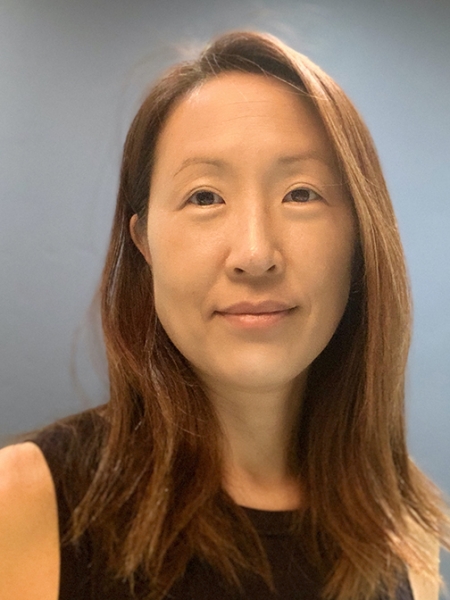 Nancy H. Kwak is an associate professor of history at UC San Diego and the current director of the Institute of Arts and Humanities. She researches the history of cities and housing policy in the twentieth century. Prof. Kwak's first book, A World of Homeowners: American power and the politics of housing aid (Chicago, 2015), won the 2015 Kenneth Jackson Award for Best Book in North American Urban History and the 2016 The Stuart L. Bernath Book Prize by the Society for Historians of American Foreign Relations. She has also co-edited a volume on Making Cities Global: The Transnational Turn in Urban History with Andrew Sandoval-Strausz (University of Pennsylvania Press, 2017) and published various articles on housing, gentrification, and development. Prof. Kwak is presently working on two separate projects, the first on the history of global urban informality and the second on housing affordability in the US. She earned her PhD from Columbia University and her BA at UC Berkeley.
Nancy H. Kwak is an associate professor of history at UC San Diego and the current director of the Institute of Arts and Humanities. She researches the history of cities and housing policy in the twentieth century. Prof. Kwak's first book, A World of Homeowners: American power and the politics of housing aid (Chicago, 2015), won the 2015 Kenneth Jackson Award for Best Book in North American Urban History and the 2016 The Stuart L. Bernath Book Prize by the Society for Historians of American Foreign Relations. She has also co-edited a volume on Making Cities Global: The Transnational Turn in Urban History with Andrew Sandoval-Strausz (University of Pennsylvania Press, 2017) and published various articles on housing, gentrification, and development. Prof. Kwak is presently working on two separate projects, the first on the history of global urban informality and the second on housing affordability in the US. She earned her PhD from Columbia University and her BA at UC Berkeley.
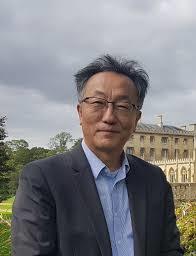 Heonik Kwon is an anthropologist and currently Senior Research Fellow in Social Science and Professor of Social Anthropology at Trinity College, University of Cambridge. Author of several prize-winning books on the legacies of the Vietnam War, his current research concentrates on the conceptual and intellectual history of the global Cold War. Prof. Heonik Kwon is the author of several books, including After the Korean War: An Intimate History (Cambridge University Press, 2020) and The Other Cold War (Columbia University Press, 2010).
Heonik Kwon is an anthropologist and currently Senior Research Fellow in Social Science and Professor of Social Anthropology at Trinity College, University of Cambridge. Author of several prize-winning books on the legacies of the Vietnam War, his current research concentrates on the conceptual and intellectual history of the global Cold War. Prof. Heonik Kwon is the author of several books, including After the Korean War: An Intimate History (Cambridge University Press, 2020) and The Other Cold War (Columbia University Press, 2010).
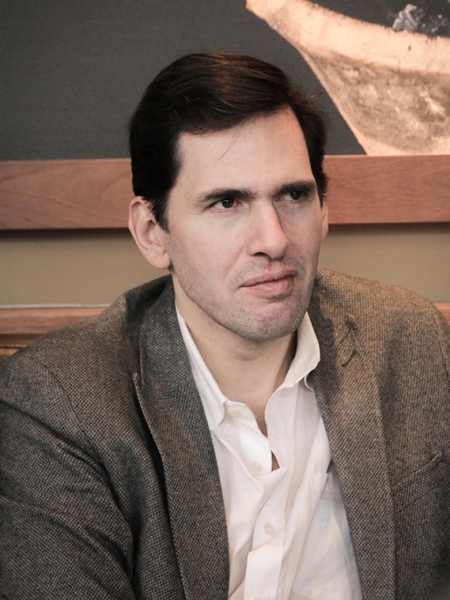 Carlos Rojas is Professor of Chinese Cultural Studies, Gender, Sexuality, & Feminist Studies (GSF), and Cinematic Arts at Duke University. His research focuses on issues of gender and visuality, corporeality and infection, and nationalism and diaspora studies. He is the author, editor, and translator of numerous studies, including Homesickness: Culture, Contagion, and National Transformation in Modern China. He is currently working on a project on Queering the Hong Kong Handover.
Carlos Rojas is Professor of Chinese Cultural Studies, Gender, Sexuality, & Feminist Studies (GSF), and Cinematic Arts at Duke University. His research focuses on issues of gender and visuality, corporeality and infection, and nationalism and diaspora studies. He is the author, editor, and translator of numerous studies, including Homesickness: Culture, Contagion, and National Transformation in Modern China. He is currently working on a project on Queering the Hong Kong Handover.
Zina Saro-Wiwa is an artist working primarily with video but also photography, sculpture, sound, and food. She lives and works in Brooklyn, New York as well as running a practise in the Niger Delta region of Nigeria where she founded the contemporary art gallery Boys’ Quarters Project Space for which she regularly curates. Saro-Wiwa is one of Foreign Policy magazine’s Global Thinkers of 2016 recognized for her work in the Niger Delta. She was Artist-in-Residence at Pratt Institute, Brooklyn in 2016-2017 and in April 2017 was awarded a Guggenheim Fellowship for Fine Arts.
Saro-Wiwa’s interest lies in mapping emotional landscapes. She often explores highly personal experiences, carefully recording their choreography, making tangible the space between internal experience and outward performance as well as bringing cross-cultural and environmental/geographic considerations to bear on these articulations. The slippery dynamics between “truth”, “reality,” and “performance” lie at the heart of her video performance work. The very idea of landscape and environment is constantly being interrogated in her video work, in the exhibitions she curates at Boys’ Quarters in Nigeria as well as in her work with food.
Since her New York debut she has been commissioned by the Menil Collection and Seattle Art Museum, has had work shown at the Pulitzer Foundation, Moderna Museet in Stockholm, Stevenson Gallery, Goodman Gallery, Nikolaj Kunsthal, Tate Britain, Fowler Museum in LA, the Brooklyn Museum, and many other institutions.
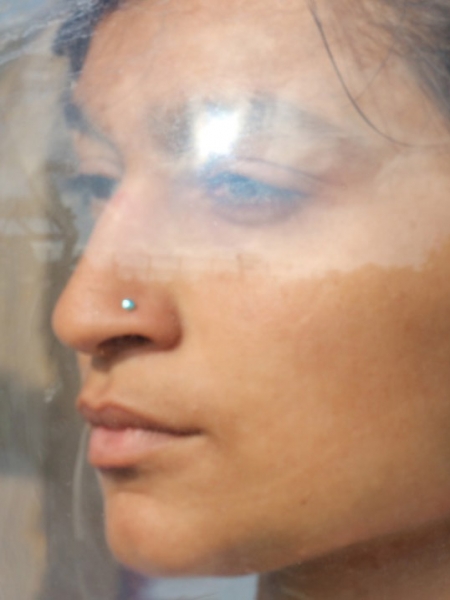 Himali Singh Soin is a writer and artist based between London and Delhi. She uses metaphors from outer space and the natural environment to construct imaginary cosmologies of interferences, entanglements, deep voids, debris, delays, alienation, distance and intimacy. In doing this, she thinks through ecological loss, and the loss of home, seeking shelter somewhere in the radicality of love. Her speculations are performed in audio-visual, immersive environments. Soin’s art is shown at exhibitions such as at the Serpentine Gallery (London) or the HKW (Berlin) and she is part of the curatorial team of Momenta Biennale 2021 in Montréal. Soin is currently Writer-in-Residence at the Whitechapel Gallery in London, and has spoken on various themes such as Afro-Asian Futurisms or the question of whether the arts can affect climate change. For “Temporalities of Choice,” Soin will present the multi-limbed work “Static Range,” set around a story of a nuclear mountain in the Himalayas. In the face of extinction, her work insists on resurgence.
Himali Singh Soin is a writer and artist based between London and Delhi. She uses metaphors from outer space and the natural environment to construct imaginary cosmologies of interferences, entanglements, deep voids, debris, delays, alienation, distance and intimacy. In doing this, she thinks through ecological loss, and the loss of home, seeking shelter somewhere in the radicality of love. Her speculations are performed in audio-visual, immersive environments. Soin’s art is shown at exhibitions such as at the Serpentine Gallery (London) or the HKW (Berlin) and she is part of the curatorial team of Momenta Biennale 2021 in Montréal. Soin is currently Writer-in-Residence at the Whitechapel Gallery in London, and has spoken on various themes such as Afro-Asian Futurisms or the question of whether the arts can affect climate change. For “Temporalities of Choice,” Soin will present the multi-limbed work “Static Range,” set around a story of a nuclear mountain in the Himalayas. In the face of extinction, her work insists on resurgence.
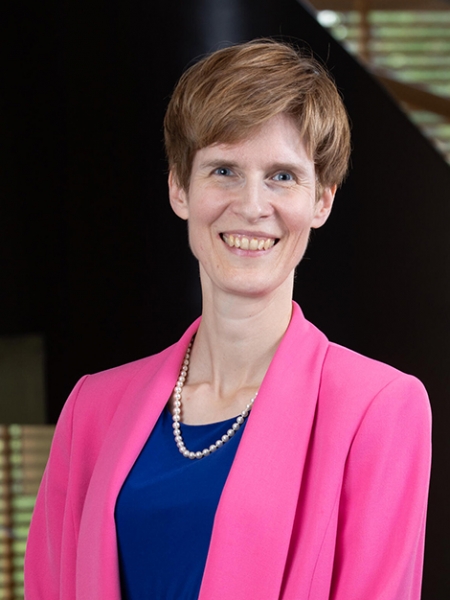 Karen Thornber is Harry Tuchman Levin Professor in Literature and Professor of East Asian Languages and Civilizations at Harvard University. She is author of three major scholarly monographs. Most recent is Global Healing: Literature, Advocacy, Care (Brill 2020), which draws on literatures from 20 languages and close to 50 nations, across six continents. Thornber’s two previous major scholarly monographs both won multiple international awards: Ecoambiguity: Environmental Crises and East Asian Literatures (Michigan 2012) and Empire of Texts in Motion: Chinese, Japanese, Korean, and Taiwanese Transculturations of Japanese Literature (Harvard 2009). Thornber’s fourth single-authored monograph, Gender Justice and Asian Literatures, is under preliminary contract. In addition, Thornber has published more than 70 academic articles and chapters on a range of fields (e.g., medical humanities, health humanities, environmental humanities, diaspora, imperialism, transculturation, translation, gender, inequality, and injustice), is (co)editor of several volumes including one on Global Indigeneities and Environment, and an award-winning translator of Japanese literature. Thornber has held many leadership positions at Harvard, including Victor and William Fung Director of the Asia Center, Acting Director of the Reischauer Institute, Chair of Comparative Literature, and Chair of Regional Studies East Asia.
Karen Thornber is Harry Tuchman Levin Professor in Literature and Professor of East Asian Languages and Civilizations at Harvard University. She is author of three major scholarly monographs. Most recent is Global Healing: Literature, Advocacy, Care (Brill 2020), which draws on literatures from 20 languages and close to 50 nations, across six continents. Thornber’s two previous major scholarly monographs both won multiple international awards: Ecoambiguity: Environmental Crises and East Asian Literatures (Michigan 2012) and Empire of Texts in Motion: Chinese, Japanese, Korean, and Taiwanese Transculturations of Japanese Literature (Harvard 2009). Thornber’s fourth single-authored monograph, Gender Justice and Asian Literatures, is under preliminary contract. In addition, Thornber has published more than 70 academic articles and chapters on a range of fields (e.g., medical humanities, health humanities, environmental humanities, diaspora, imperialism, transculturation, translation, gender, inequality, and injustice), is (co)editor of several volumes including one on Global Indigeneities and Environment, and an award-winning translator of Japanese literature. Thornber has held many leadership positions at Harvard, including Victor and William Fung Director of the Asia Center, Acting Director of the Reischauer Institute, Chair of Comparative Literature, and Chair of Regional Studies East Asia.



